The Future of Learning Reshaped By VR, AR, And Blockchain
13 July 2023
The world of education is rapidly changing, and the introduction of new future internet technologies like augmented reality, virtual reality, and blockchain are revolutionizing how we learn.
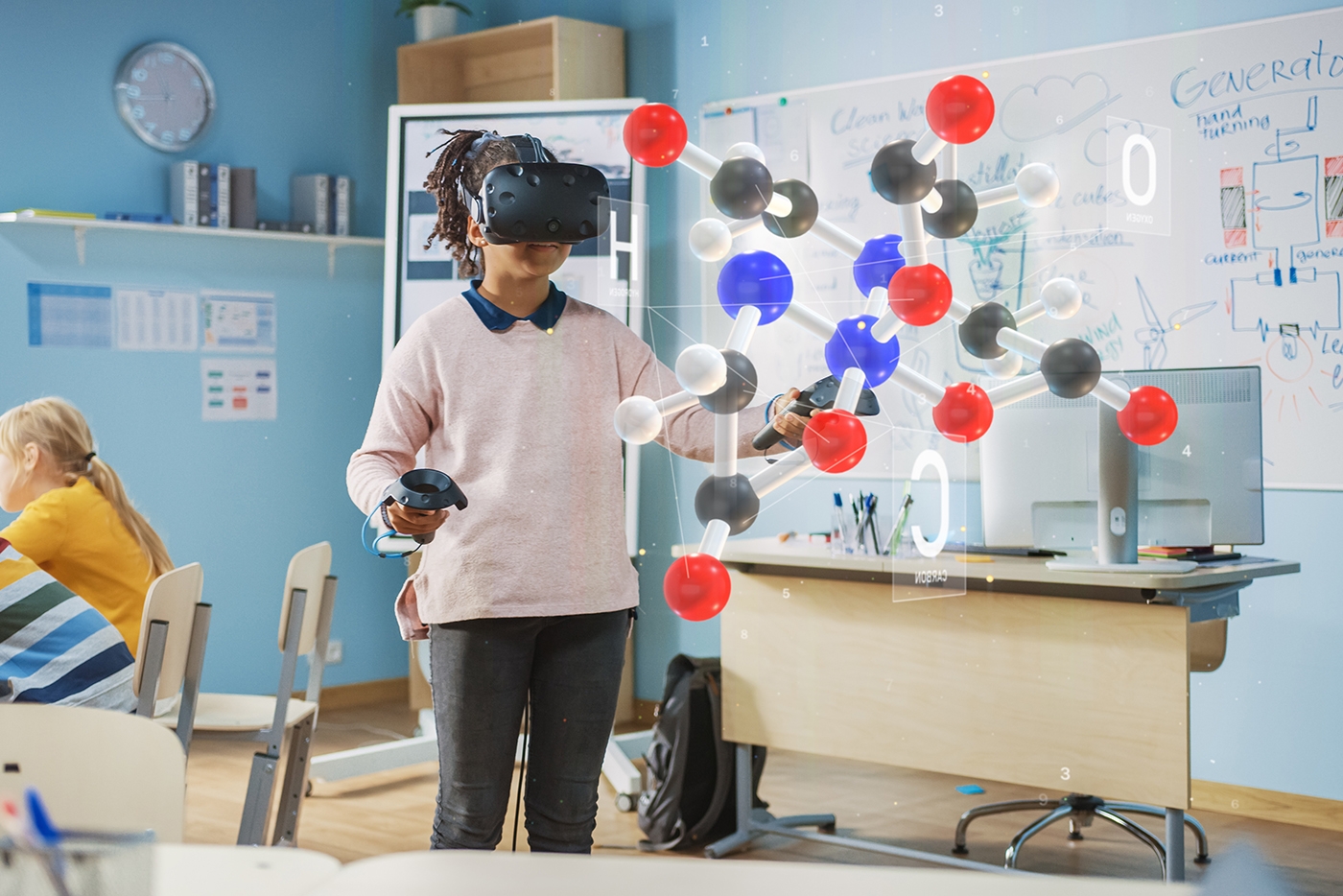
Education in the metaverse has become a hot topic as these advancements have enabled us to expand our learning opportunities beyond traditional classrooms and training rooms. We can now explore different topics through immersive experiences that go far beyond just reading books or listening to lectures.
Let’s take a closer look at how the future internet will transform the way we learn, from formal learning to workplace training.
How the Future Internet Will Improve Formal Education
Formal education institutions are increasingly turning to the metaverse to incorporate innovative teaching methods into traditional classrooms.
Within VR environments, students can explore their surroundings, interact with objects, and even collaborate with each other on projects or simulations.
VR also enables teachers and students to explore different worlds without having to leave the classroom; this could include visiting historical sites, exploring outer space, or touring foreign countries virtually.
In immersive VR worlds, you can do things that aren't possible in a classroom, like looking at Earth from outer space or shrinking down so you can take an interactive tour of the human body. For example, Labster’s virtual lab platform enables students to experiment with 250+ virtual lab simulations so they can conduct a wide variety of experiments in a safe way.
With AR, we can also overlay digital elements on top of real-world classroom objects. This can be a highly useful way of bringing concepts to life in the classroom. Froggipedia, for example, is a hands-on AR experience that walks students through the process of studying the internal organs of a frog without requiring any real-life dissection.
Research suggests that learning through experience increases the quality of learning for students and improves knowledge retention by as much as 90%.
These types of immersive learning experiences allow for a greater understanding of complex concepts as well as increased engagement from learners who may not have been interested in more traditional approaches to instruction.
Transforming Workplace Training
Businesses are also leveraging the power of the future internet to create more effective, more enjoyable employee training programs.
By creating realistic simulations within a virtual environment, employers can provide employees with hands-on experience without having to leave their desks or incur additional costs associated with physical locations or materials needed for training sessions. Immersive training also reduces the risk of learning scenarios that would typically be dangerous, like firefighter or law enforcement training.
This type of immersive learning helps employees retain information better than traditional methods like listening to lectures, reading written instructions, or watching training videos.
Multinational oil and gas company BP partnered with Igloo Vision to create safe virtual training for oil refinery workers. Igloo Vision built a six-meter igloo at BP’s refinery in Hull, England, so employees could experience a detailed replica of the plant and practice critical safety tasks.
Blockchain’s Role in the Future of Education
Blockchain technology can also impact education in the future by providing a secure and immutable way of storing educational data. By using blockchain, educational institutions can securely store student records, course materials, transcripts, and other important documents in an encrypted digital ledger. This ensures that only authorized personnel have access to sensitive information while also protecting it from malicious actors or hackers.
In the future, we may be able to store and verify our educational qualifications from different providers and institutions all in one place, eliminating the need to call various colleges to get copies of transcripts or certifications. All our education records could live on the blockchain, and we could have something like a crypto-wallet or e-passport for our credentials.
Smart contracts could also help streamline administrative processes such as enrolling new students or transferring credits between universities.
Moving Learning Into the Future
The metaverse and its related technologies are having a major impact on education. From augmented reality to virtual reality, these tools are revolutionizing how we learn both in formal educational settings and in workplace training settings.
As more people become familiar with the metaverse’s capabilities, it's likely that education will continue to evolve in exciting ways. We’ve already made great strides toward creating more interactive and immersive learning experiences for learners of all ages.
Educators, businesses, governments, and technology experts will need to collaborate to ensure a successful transition from traditional classroom-based teaching methods to adopting a hybrid format where learning takes place across shared virtual environments and physical classrooms.
Related Articles
Why The AI Supercycle Will Fail Without Advanced Networks
By now, “smart” versions exist of just about every home appliance, gadget and gizmos we can think of. However, manufacturers continue[...]
The Two-Tier AI Economy: Why Half Of Companies Are Being Left Behind And How To Close The Gap
By now, “smart” versions exist of just about every home appliance, gadget and gizmos we can think of. However, manufacturers continue[...]
5 AI-Era Skills Mistakes That Will Cost Your Business Millions In 2026
By now, “smart” versions exist of just about every home appliance, gadget and gizmos we can think of. However, manufacturers continue[...]
5 ESG Trends That Will Shape Business in 2026
By now, “smart” versions exist of just about every home appliance, gadget and gizmos we can think of. However, manufacturers continue[...]
The 5 Robotics Trends In 2026 You Must Get Ready For Now
By now, “smart” versions exist of just about every home appliance, gadget and gizmos we can think of. However, manufacturers continue[...]
10 Generative AI Trends In 2026 That Will Transform Work And Life
By now, “smart” versions exist of just about every home appliance, gadget and gizmos we can think of. However, manufacturers continue[...]
Sign up to Stay in Touch!
Bernard Marr is a world-renowned futurist, influencer and thought leader in the fields of business and technology, with a passion for using technology for the good of humanity.
He is a best-selling author of over 20 books, writes a regular column for Forbes and advises and coaches many of the world’s best-known organisations.
He has a combined following of 4 million people across his social media channels and newsletters and was ranked by LinkedIn as one of the top 5 business influencers in the world.
Bernard’s latest book is ‘Generative AI in Practice’.




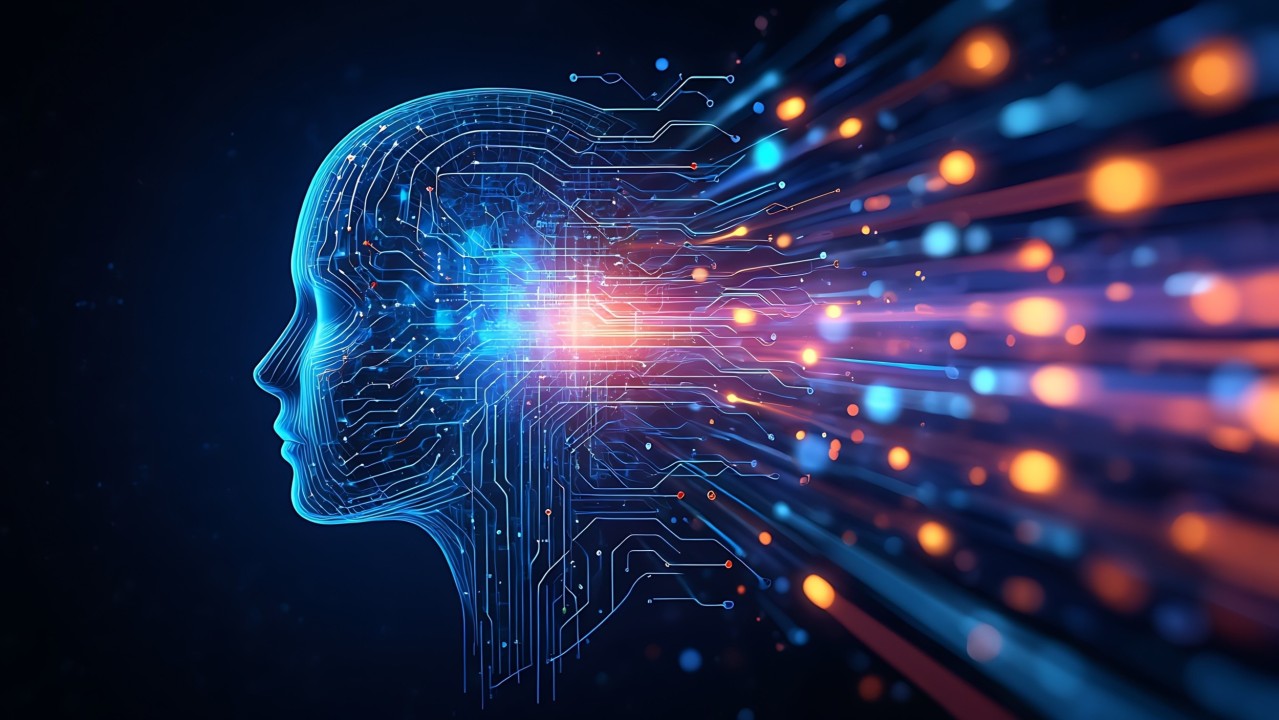


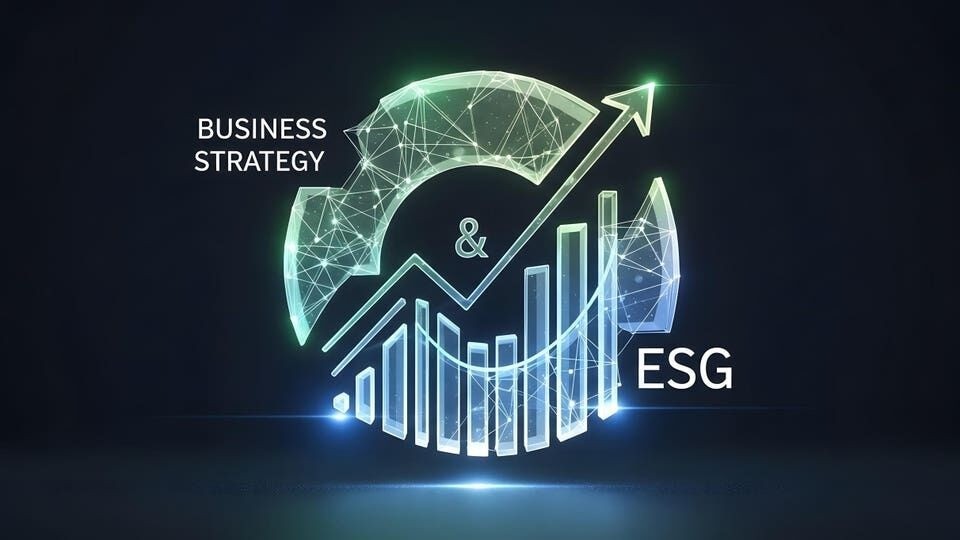
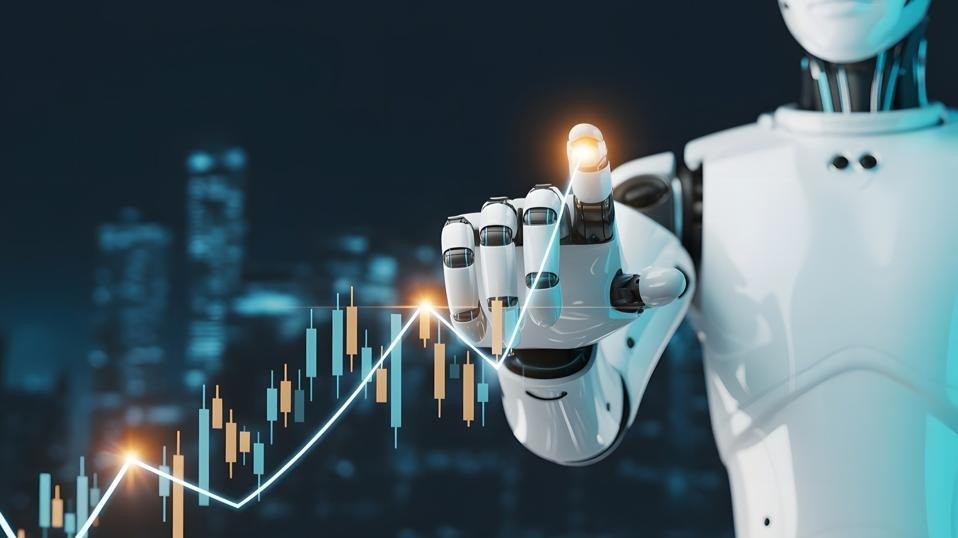
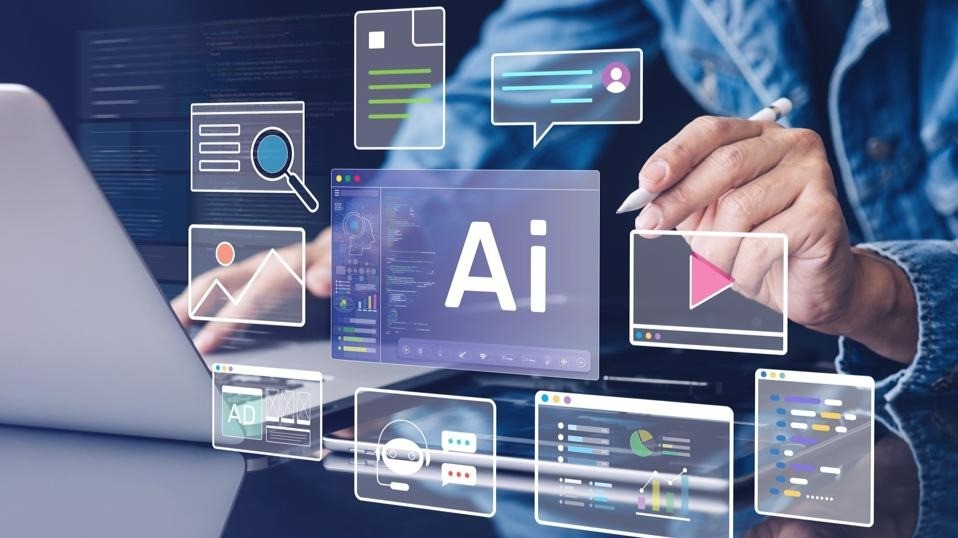
Social Media